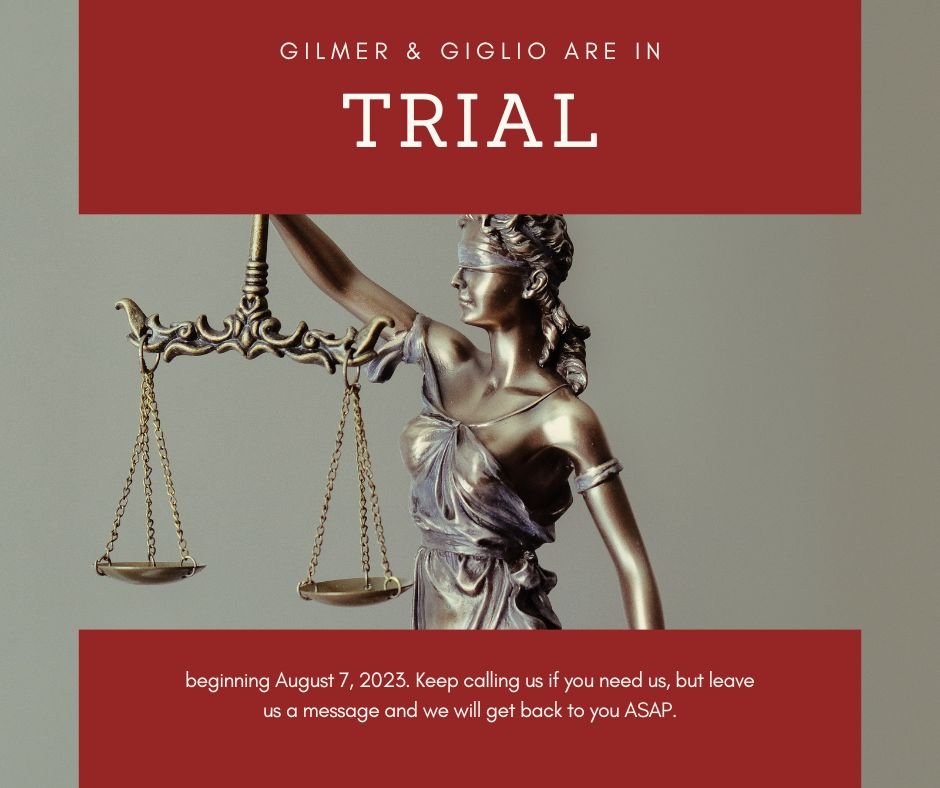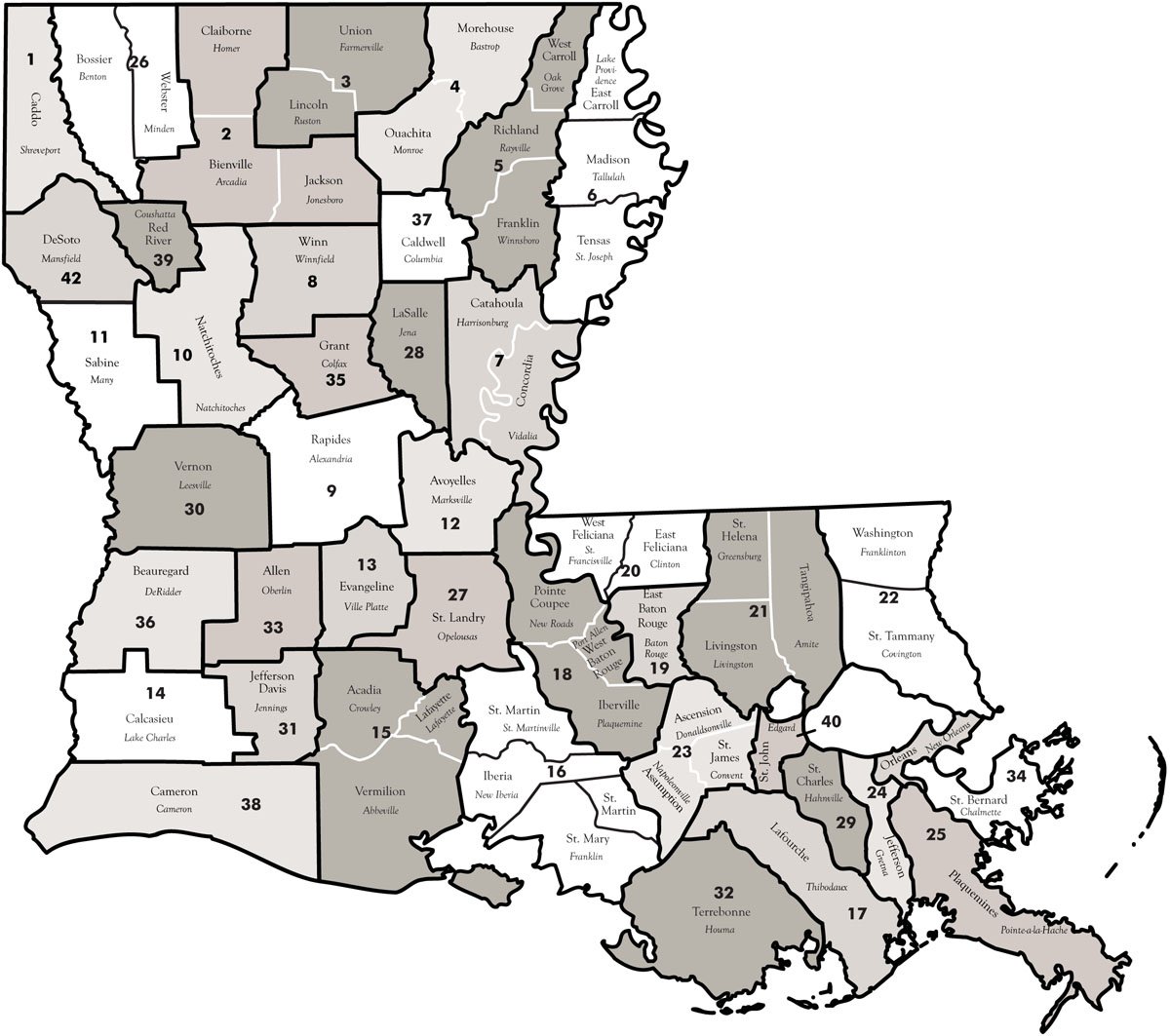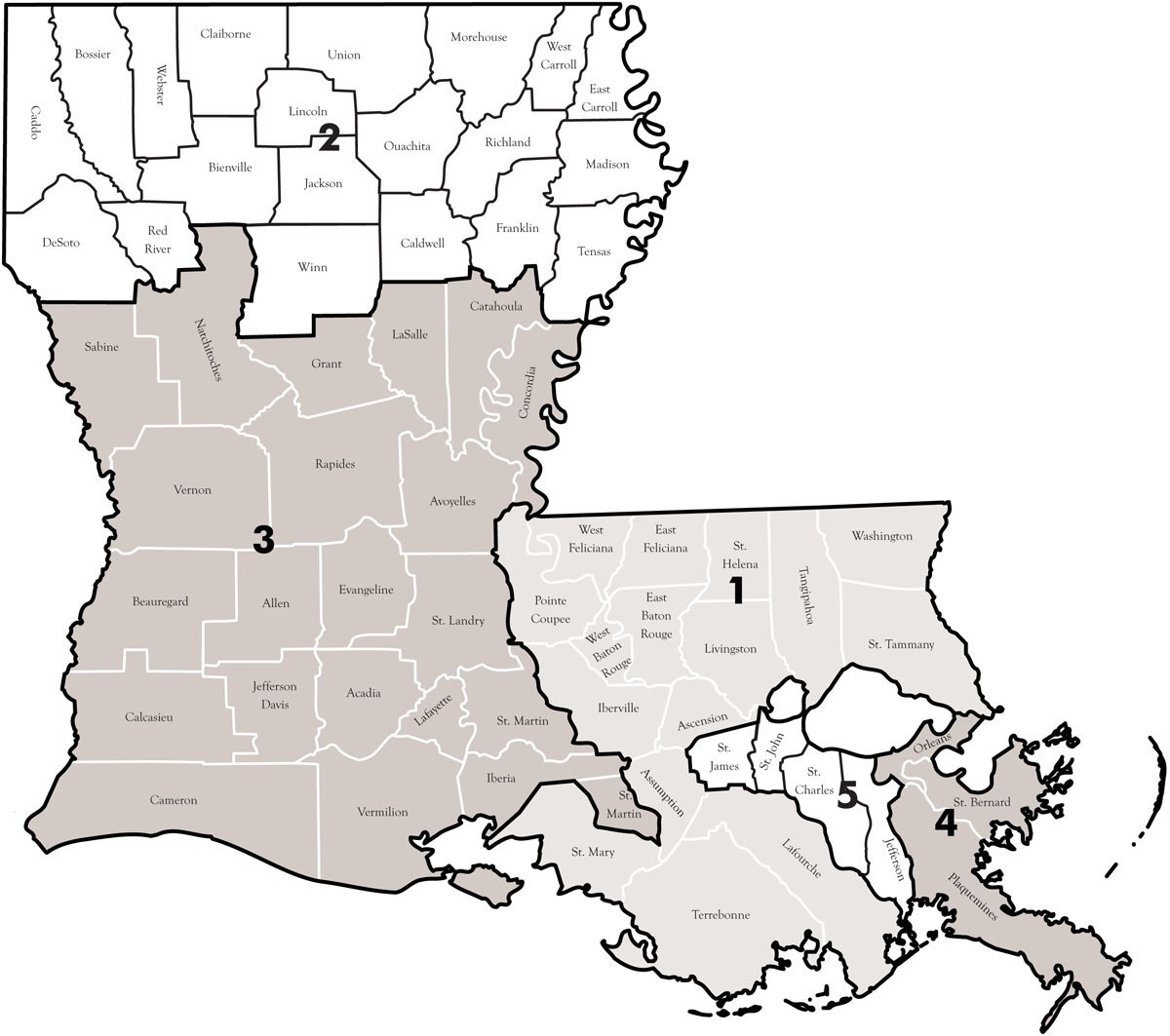At Gilmer & Giglio, we frequently handle bond matters, including reduction requests. Here are our answers to a few basic bond-related questions that we often receive. Of course, each case is different, so if you or a loved one needs help, give us a call at (318) 459-9111, to talk to us about your case specifically.
Q: What is the purpose of bond?
A: Per Louisiana Code of Criminal Procedure Art. 316, bond must be fixed “in an amount that will ensure the presence of the defendant, as required, and the safety of any other person and the community.”
Q: What does the judge consider when setting the bond?
A: The Louisiana Code of Criminal Procedure sets out ten factors to be considered in setting a defendant’s bond. They are:
The seriousness of the offense charged (including whether it is a crime of violence or involved a controlled dangerous substance;
The weight of the evidence against the defendant;
The previous criminal record of the defendant;
The ability of the defendant to post bail;
The nature and seriousness of the danger to any other person or the community that would be posed by the defendant’s release;
The defendant’s voluntary participation in a pretrial drug testing program;
The absence or presence in the defendant of any controlled dangerous substance;
Whether the defendant is currently out on bond for another felony;
Any other circumstances affecting the probability of the defendant’s appearance; and
The type or form of bail
Q: Why is it taking so long to get a bond set in my Domestic Abuse Battery case?
A: This is likely because of Gwen’s law. If you are charged with domestic abuse battery, violation of protective orders, stalking or any felony offense involving the use or threatened use of force or a deadly weapon upon a family member, household member or dating partner, the court can hold you for a contradictory hearing (a “Gwen’s law hearing”) for up to five days after the finding of probable cause (usually the arrest day). This five-day window is exclusive of weekends and holidays. At that hearing, the court will make a determination as to whether or not the Defendant will have to remain incarcerated pending trial. Additionally, if bond is set at that hearing, there is a high likelihood that a protective order will be issued in favor of the complainant. If possible, you should hire an attorney before this hearing.
Q: I’ve already bonded out, but now I think that the bond was too high. Can we go back and get a reduction?
A: No.
Q: I bonded out, but now the State is asking for a bond increase. Can they do that?
A: Just like you can ask for a bond reduction, they can ask for a bond increase. We see this frequently, when a Defendant bonds out and subsequently picks up a new charge. Whether a bond increase is granted depends on many circumstances, just as a reduction does.
Q: What are my bond conditions?
A: Bond conditions are specific to each case, so each Defendant’s bond may be a little bit different. The jail or your bondsman should give you your bond conditions when you leave the jail. Common conditions of bond include: orders to refrain from criminal activity and drug use, avoid associating with felons, not to leave the state without prior written permission of the court, and to obey any orders of protection.
In more serious cases, the court may require global position monitoring (ankle monitoring). It is incredibly important in cases where there is a protective order or no-contact order is in place, you abide by that order. It does not matter how friendly you are with that person or that you are in a romantic relationship with them—violation of these orders is the fastest way to get your bond revoked. Don’t do it!
Q: What is the process to get a bond reduction?
A: If you hire us for your case, and would like us to seek a bond reduction, our first step would be to get you a court date as soon as possible, so the judge can hear the evidence quickly and hopefully get the bond reduced so you can get out of jail. Sometimes getting set on a docket takes a day, and sometimes it takes weeks, but that is the first step. Once we have a court date, we may subpoena witnesses to testify as to your ties to the community, work history, lack of drug history, etc. We may also start collecting character letters on your behalf. Additionally, we usually speak to the prosecutor to see if they will agree with the bond reduction. It is the policy of most District Attorneys to oppose bond reductions, but we have been able to get them to agree in some situations. At the bond hearing, we will present evidence, the state will present evidence, and then both sides will argue to the judge. Typically, the judge will rule on the bond reduction that day in open court, although sometimes they take the matter under advisement, which means we have to come back to court to get the answer.
Q: I need to travel out of state, but my bond conditions say I can’t. Can you do anything about this?
A: Yes. We often file motions to amend bond conditions, requesting that the judge sign an order allowing you to travel out of the state even though it is otherwise a violation of bond. We work to make sure your bondsman has no opposition, and then explain the reason for travel to the judge, find out if the State has any opposition, and hopefully the judge will approve your travel. If he or she does approve it, we give you a copy of the signed order to take with you while you travel, so you don’t run into any issues.
If you have been arrested and would like to discuss your options in more detail, please call us at (318) 459-9111 to set up a consult.






















